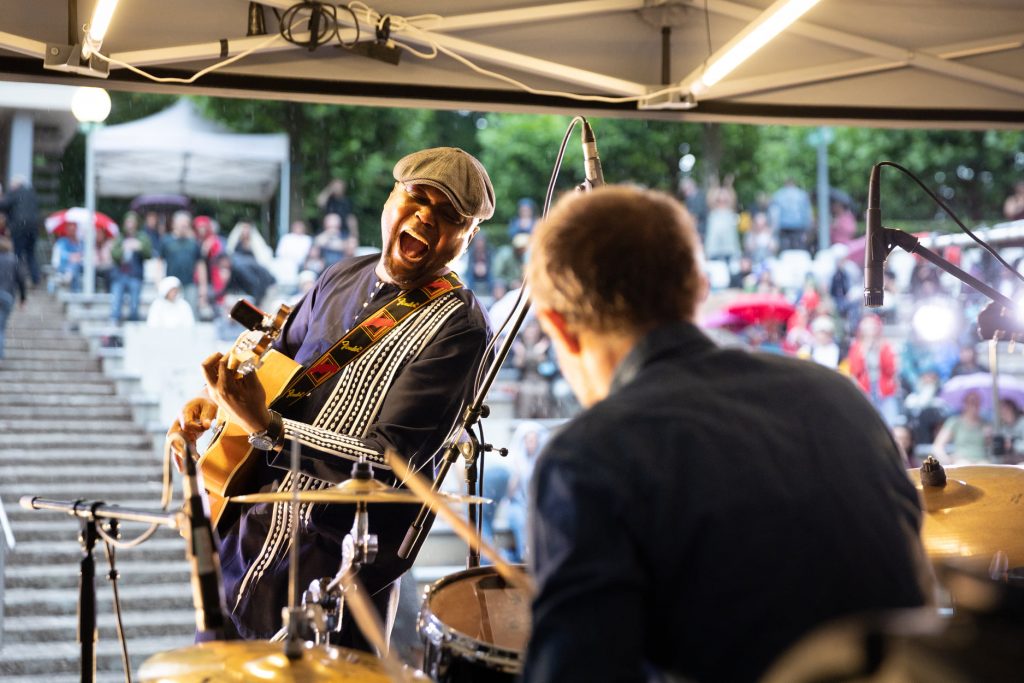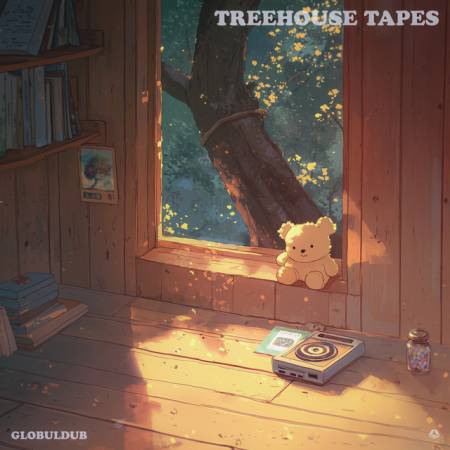Benin-born artist Serge Ananou is a musician with a purpose who goes beyond offering entertainment and sonic experiences. When it comes to sound, Serge Ananou's music is African but incorporates contributions from funk, blues, and jazz. Above all though, he tells stories of his homeland and opposing colonization throughout his work.
The talented star will be performing at the International A to JazZ Festival - a showcase based in Sofia, Bulgaria with a mission to spread and promote jazz, world, and improvised music among young people. We recently caught up with Serge and throughout the conversation, we dived into his childhood, his view on live performances, and much more.

What were some of the early signs in your childhood that you’d end up doing music?
I grew up in a musical environment. On the one hand, there were the Vodou ceremonies with percussions. On the other hand, I grew up with my father's vinyls at home. I took my first steps as a musician as a percussionist at Vodou ceremonies and I already knew then that I liked it. After that, I discovered the guitar, so my happiest moments were when I was making music. I didn't know I was going to make a living out of it, but I couldn't live without it.
When in your music-making journey did you realize, "THIS is the kind of music I want to create"?
Stay up to date.
New music and exclusive updates in your inbox weekly.
I love all kinds of music and I'm always on the lookout for new music and new instruments. I have been lucky enough to play with some wonderful musicians from the island of Reunion, India, France, Germany, Turkey, Syria and other African countries, to name but a few, and I have learned a lot every time. After my studies of jazz in Paris, I wanted to make music that embodied the fusion between what I had learned along the way and the music of my country. It is music that is like me and that I am trying to promote.
As a self-taught musician, you achieved numerous accomplishments on your own. However, what motivated you to pursue formal music studies at CFPM and the American School of Modern Music/IMEP? What are some of the lasting lessons from that experience?
When I was still in Benin, I used to play regularly in a bar with my friends. We played covers of pop, reggae, funk, and disco music. One day, a group of jazz musicians came by to play a few songs and the bar owner demanded that we include them in our group. My friends and I were playing songs with two or three chords, and they came along with songs with 33 chords. It was complicated for us. We tried to manage, but in the end, we were fired because we didn't have the level and they took our place. That’s why I decided to study and understand jazz.
I didn't become a jazz musician, but I learned a lot about jazz harmony, which helped me understand other music.
How is your music and your performances received at home compared to abroad?
My music is played on TV and radio but it's not yet popular in my country. There is a category of people who like it and I'm working on it to make it more accessible to all my compatriots. I haven't yet played a concert in my country after my two albums, but it won't be long now.
When it comes to your songwriting, do you find yourself diving more so diving into more introspective themes, or does your music lean more towards a reflection of the world you see?
Most of the time I write about what's going on around me. Everyday reality, the daily lives of those close to me, the ups and downs in my life. I think I still have a lot to say, given the speed at which the world is changing.
How would you describe the Serge that released Bônou, as compared to the artist you evolved into when you released Akôwé?
I'd say I matured between my two albums. I tried to do things only with passion on my first album without really taking into account the realities of the profession. For Akôwé the passion is there, but I took the time to build a professional structure around me for the years to come.
For you, what does it mean to embody showmanship in your performances?
Embodying the meaning of the show means sharing a unique, privileged moment with the audience. Being one with the audience and making each show an unforgettable experience.
What can your fans expect from you over the next year?
I'm working on my third album, which will be released in 2025, and I can't wait to share the first extracts with them.
Okay so, 1) an artist/band you’d love to have a D.M.C (deep meaningful conversation) with 2) an artist you think would be rad to party with 3) an artist you would love to spend a week within the studio. You’re welcome to select from artists who are dead/retired.
If I had the chance to have a D.M.C with an artist, it would be Ravi Shankar. May his soul rest in peace. I love the sound of his Sitar, his virtuosity and above all the emotion he transmits. I would have loved to discuss music and spirituality with him.
For a party with an artist, I'd choose one who's also dead: James Brown because I love funk!
For one week in the studio, I'd choose Richard Bona, even a year in the studio. His creativity knows no bounds and I love his musical freedom.







